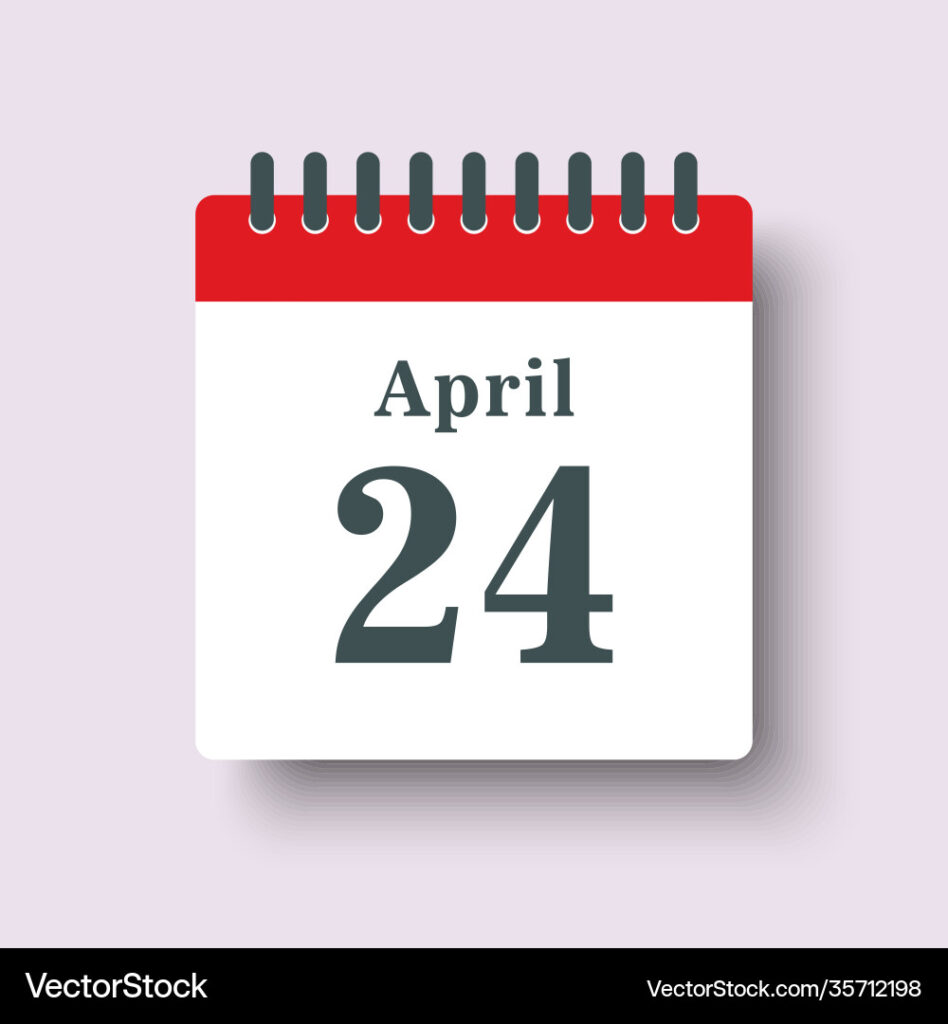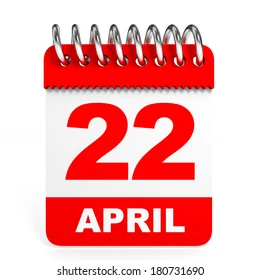April 26th has seen numerous significant events throughout world history. From political upheavals to scientific breakthroughs, this date has left an indelible mark on the collective memory of humanity. Let’s take a journey through time to explore some of the key moments that have occurred on April 26th.
- 1478: The Pazzi Conspiracy – In Florence, Italy, a plot to overthrow the powerful Medici family unfolds. Known as the Pazzi Conspiracy, it resulted in the assassination attempt of Lorenzo de’ Medici and his brother Giuliano during Mass at the Cathedral of Santa Maria del Fiore. While Giuliano was killed, Lorenzo survived, leading to a brutal retaliation by the Medici family against the conspirators.
- 1564: Birth of William Shakespeare – Arguably the greatest playwright and poet in the English language, William Shakespeare was born in Stratford-upon-Avon, England. His works, such as “Romeo and Juliet,” “Hamlet,” and “Macbeth,” have had an enduring impact on literature and theater, making April 26th a significant date for lovers of literature.
- 1803: Purchase of the Louisiana Territory – The United States doubles its territory through the Louisiana Purchase. President Thomas Jefferson negotiated the purchase of the vast Louisiana Territory from France, effectively doubling the size of the young nation and opening the door for westward expansion.
- 1937: Bombing of Guernica – During the Spanish Civil War, the town of Guernica in the Basque region of Spain is bombed by German and Italian aircraft. The bombing, carried out at the behest of General Francisco Franco’s Nationalist forces, resulted in widespread destruction and civilian casualties. It later inspired one of Pablo Picasso’s most famous paintings, “Guernica,” which depicted the horrors of war.
- 1954: Geneva Accords – The Geneva Conference concludes with the signing of the Geneva Accords, which effectively ends the First Indochina War. The agreement divides Vietnam along the 17th parallel, creating separate North and South Vietnamese states. This division would ultimately lead to the Vietnam War.
- 1962: First successful launch of a satellite by a private company – The American company, Westinghouse Electric, successfully launches Telstar 1, the world’s first privately sponsored space-faring mission. Telstar 1 would later relay the first transatlantic television signals, marking a significant milestone in telecommunications history.
- 1986: Chernobyl Disaster – The worst nuclear disaster in history occurs at the Chernobyl Nuclear Power Plant in Ukraine, then part of the Soviet Union. A combination of design flaws and human error during a safety test led to a massive explosion and the release of radioactive materials into the atmosphere. The disaster had far-reaching environmental and health consequences, and the area around Chernobyl remains largely uninhabitable to this day.
- 1994: South African first democratic election – After decades of apartheid rule, South Africa holds its first multiracial democratic elections. Nelson Mandela, who had spent 27 years in prison for his anti-apartheid activism, becomes the country’s first black president, marking the beginning of a new era of reconciliation and democracy in South Africa.
- 2005: Syria Ends Military Occupation of Lebanon – Following international pressure and widespread protests in Lebanon, Syria withdraws its troops from the country, ending nearly 30 years of military occupation. The withdrawal comes in the aftermath of the assassination of former Lebanese Prime Minister Rafik Hariri, which many believed was orchestrated by the Syrian government.
- 2018: Inter-Korean Summit – North Korean leader Kim Jong-un and South Korean President Moon Jae-in hold a historic summit at the border village of Panmunjom. The summit marks a significant thaw in relations between the two Koreas and sets the stage for subsequent meetings between Kim Jong-un and other world leaders, including U.S. President Donald Trump.
- 1857: The Indian Rebellion of 1857 – While the rebellion began earlier in May 1857, on April 26th, the uprising gained momentum with significant skirmishes and battles across various regions of India. This event marked a watershed moment in Indian history, as it challenged British colonial rule and led to significant changes in governance and administration.
- 1883: Birth of Dadabhai Naoroji – Dadabhai Naoroji, often referred to as the Grand Old Man of India, was born on April 26th, 1883. He was a prominent figure in the Indian National Congress and a leading voice in the Indian independence movement. Naoroji was also the first Indian to be elected to the British Parliament, where he advocated for Indian interests and the end of British colonial rule.
- 1933: Birth of Aruna Asaf Ali – Aruna Asaf Ali, a prominent freedom fighter and social activist, was born on April 26th, 1933. She played a significant role in the Indian independence movement, particularly during the Quit India Movement of 1942. Asaf Ali was known for her fearlessness and dedication to the cause of Indian independence, earning her the title of “Heroine of the 1942 Movement.”
- 1966: Establishment of the Film and Television Institute of India (FTII) – The FTII, located in Pune, Maharashtra, was established on April 26th, 1966. It is one of the premier film schools in India and has produced several notable filmmakers, actors, and technicians who have made significant contributions to Indian cinema. The institute offers courses in various aspects of filmmaking and has played a crucial role in shaping the Indian film industry.
- 1986: Death of Shankar Dayal Sharma – Shankar Dayal Sharma, the ninth President of India, passed away on April 26th, 1986. He served as President from 1992 to 1997, during which time he played a key role in upholding the values of democracy and secularism. Sharma was a respected political leader and academician, with a long and distinguished career in public service.
- 2013: Launch of IRNSS-1A – India’s Regional Navigation Satellite System (IRNSS), also known as NavIC (Navigation with Indian Constellation), took a significant step forward with the launch of IRNSS-1A on April 26th, 2013. NavIC is designed to provide accurate positioning and timing information over the Indian region and surrounding areas, enhancing India’s capabilities in navigation and geospatial services.
- World Intellectual Property Day: Established by the World Intellectual Property Organization (WIPO), World Intellectual Property Day is observed on April 26th each year to raise awareness about the role that intellectual property rights (patents, trademarks, copyrights) play in encouraging innovation and creativity.
- International Chernobyl Disaster Remembrance Day: Designated by the United Nations General Assembly, April 26th is observed as International Chernobyl Disaster Remembrance Day to honor the victims and raise awareness about the consequences of the Chernobyl nuclear accident, which occurred on April 26th, 1986.
- Hug an Australian Day: While not an officially recognized holiday, some people celebrate April 26th as “Hug an Australian Day.” It’s a lighthearted occasion to show appreciation for Australians and their culture, often observed with hugs, friendly gestures, and sharing Australian-themed activities or treats.
- National Pretzel Day (United States): In the United States, April 26th is celebrated as National Pretzel Day. It’s a day to indulge in and appreciate the deliciousness of pretzels, whether they’re soft, crunchy, savory, or sweet. Some businesses may offer special deals or promotions on pretzels to mark the occasion.
- Freedom Day (Tanzania): In Tanzania, April 26th is celebrated as Freedom Day to commemorate the overthrow of dictatorship and the establishment of a multi-party democracy in the country. It marks the anniversary of the Zanzibar Revolution of 1964, which led to the union of Tanganyika and Zanzibar to form the United Republic of Tanzania.
- Lesotho Independence Day: April 26th is Lesotho’s Independence Day, commemorating the day in 1966 when the Kingdom of Lesotho gained independence from British colonial rule. It’s a national holiday in Lesotho, celebrated with various events, ceremonies, and festivities across the country.






